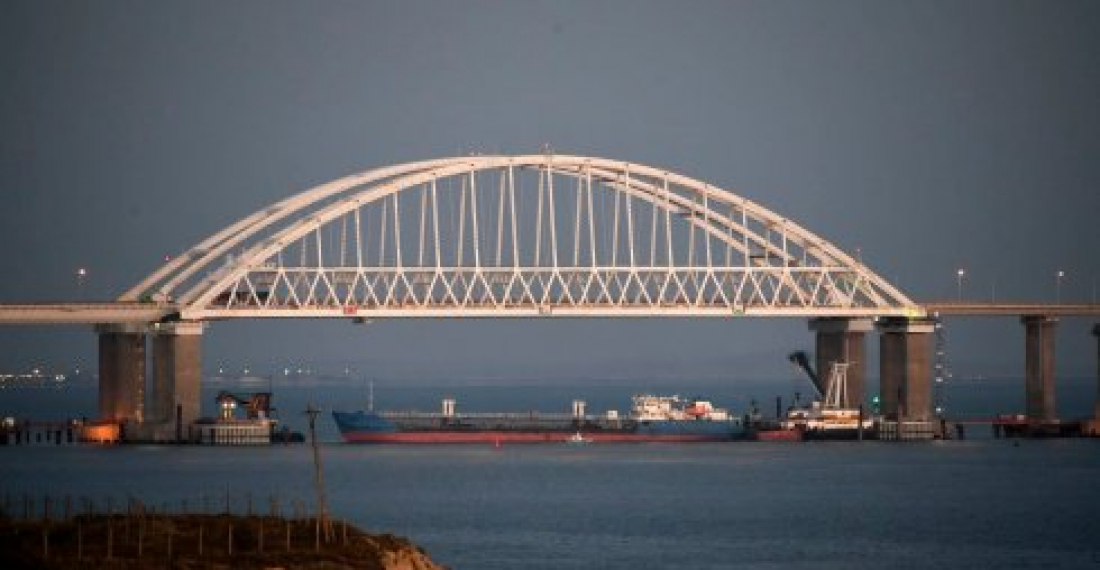Украина намерена сегодня объявить военное положение после резкого роста напряженности с Россией после инцидентов в Азовском море.
В воскресенье утром украинский рейдовый буксир "Яни Капу" и два малых бронированных артиллерийских катера "Бердянск" и "Никополь" попытались проплыть из Одесского морского порта в Мариуполь, в Азовском море, который находится под общим пользованием двумя странами.
Украина заявила, что российская сторона попыталась перехватить корабли, таранируя буксир.
Суда продвигались к Керченскому проливу, единственному доступу к Азовскому морю, но были заблокированы танкером под Керченским мостом.
Россия построила мост, который связывает материковую Россию с Крымом в начале этого года, несмотря на оппозицию со стороны Украины.
В воскресенье Россия также перебросила два истребителя и два вертолета в этот район. Она заявила, что корабли незаконно попытались проникнуть в ее воды и сказала, что их продвижение было остановлено по соображениям безопасности.
Позднее украинский военно-морской флот сообщил, что лодки были захваченны и отбуксированны, когда они пытались покинуть этот район. Сообщается также, что шесть членов экипажа получили ранения.
В заявлении, опубликованном в воскресенье вечером, представитель Службы внешних действий Европейского союза призвал Россию восстановить свободу прохода в Керченском проливе.
В заявлении говорится:
"Напряженность в Азовском море и Керченском проливе значительно увеличилась после инцидента сегодня утром между российскими и украинскими военно-морскими судами, поскольку последние попытались пройти через Керченский пролив, а также последующие события, включая закрытие пролива для движения российскими властями и сообщения о захвате украинских судов и выстрелах по ним.
Мы ожидаем, что Россия восстановит свободу прохода в Керченском проливе и призываем всех действовать с предельной сдержанностью, чтобы не дестабилизировать ситуацию.
Как было ясно заявлено Высоким представителем в Европейском парламенте в последнее время, события в Азовском море являются демонстрацией того, как нестабильность и напряженность неизбежно будут возрастать, если не будут приняты во внимание основные правила международного сотрудничества. Строительство Керченского моста проходило без согласия Украины и представляет собой еще одно нарушение суверенитета и территориальной целостности Украины. Это параллельно с милитаризацией Азовского моря привело к ужесточению контроля над военно-морским движением в проливе. Европейский союз ожидает, что Россия прекратит контроль."
ЕС не признает и не признает незаконную присоединение Крымского полуострова к России".
источник: commonspace.eu по материалам агентств






